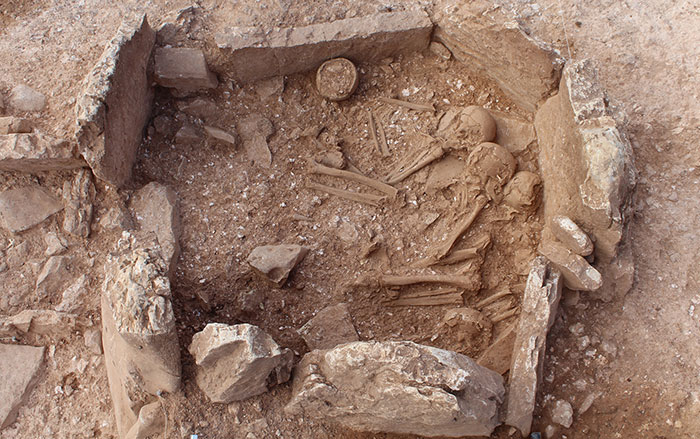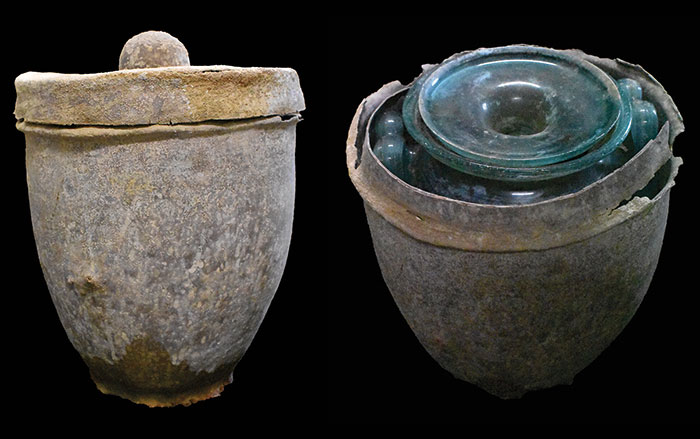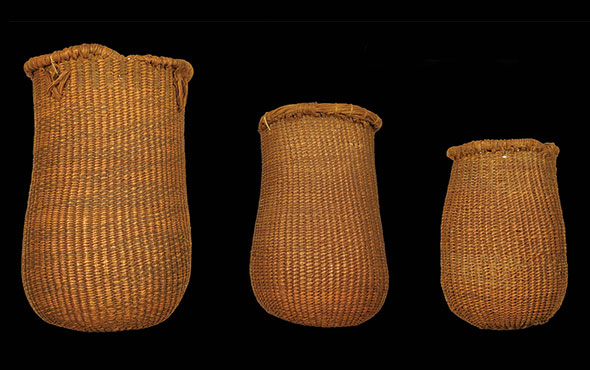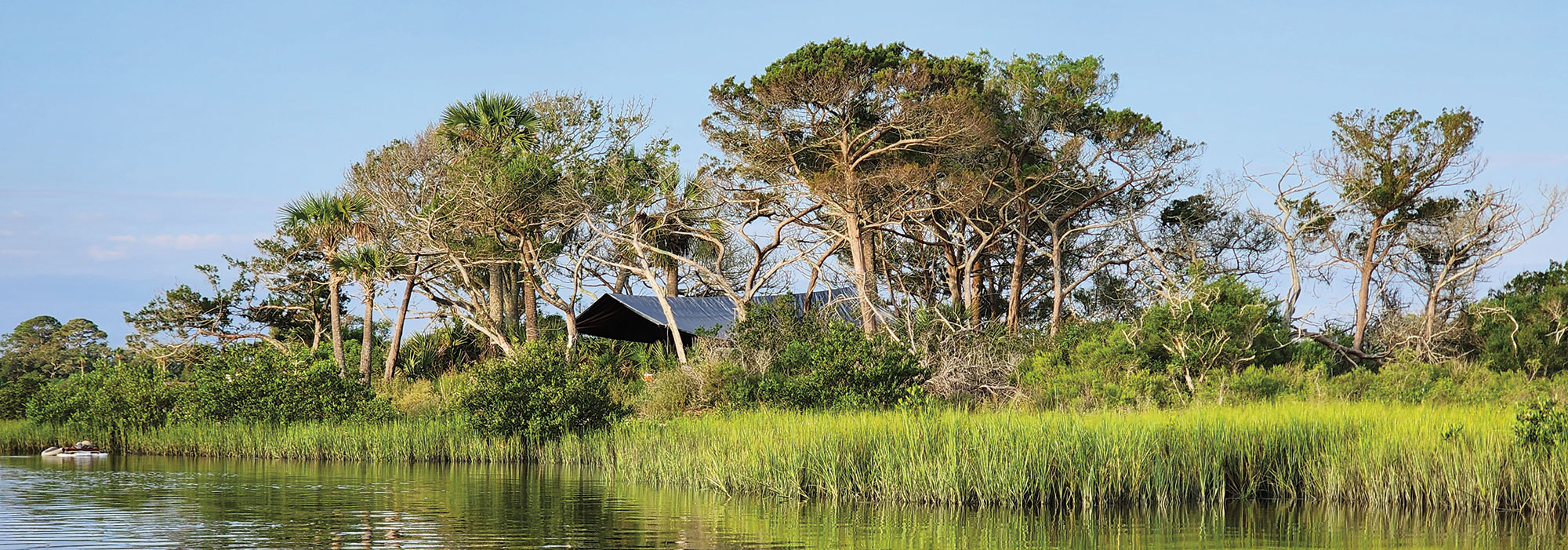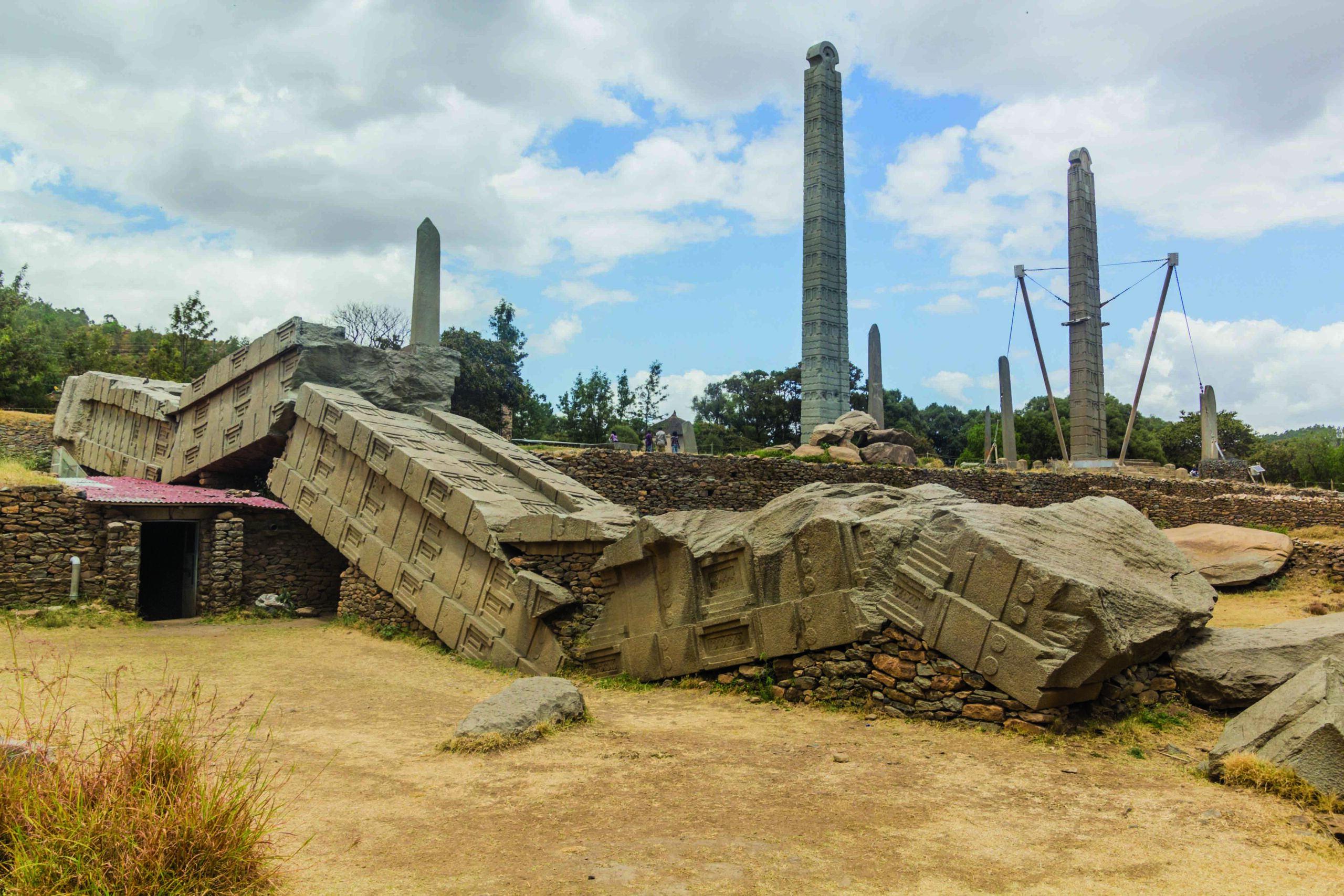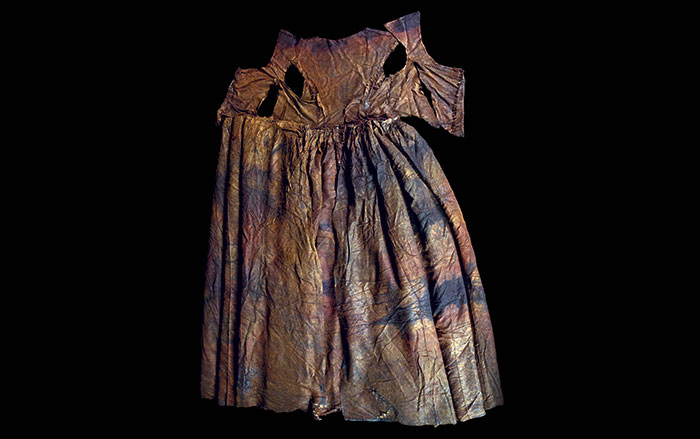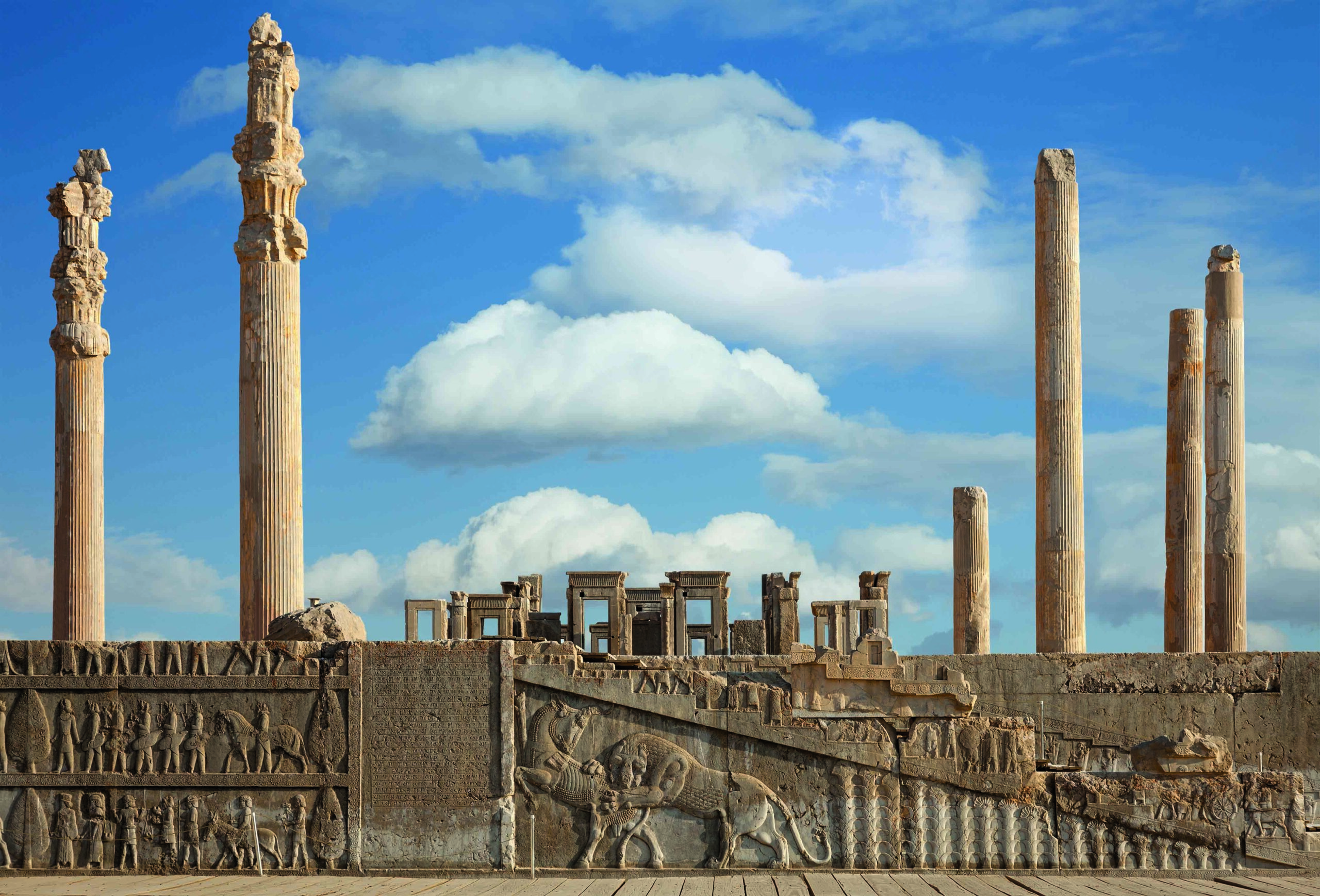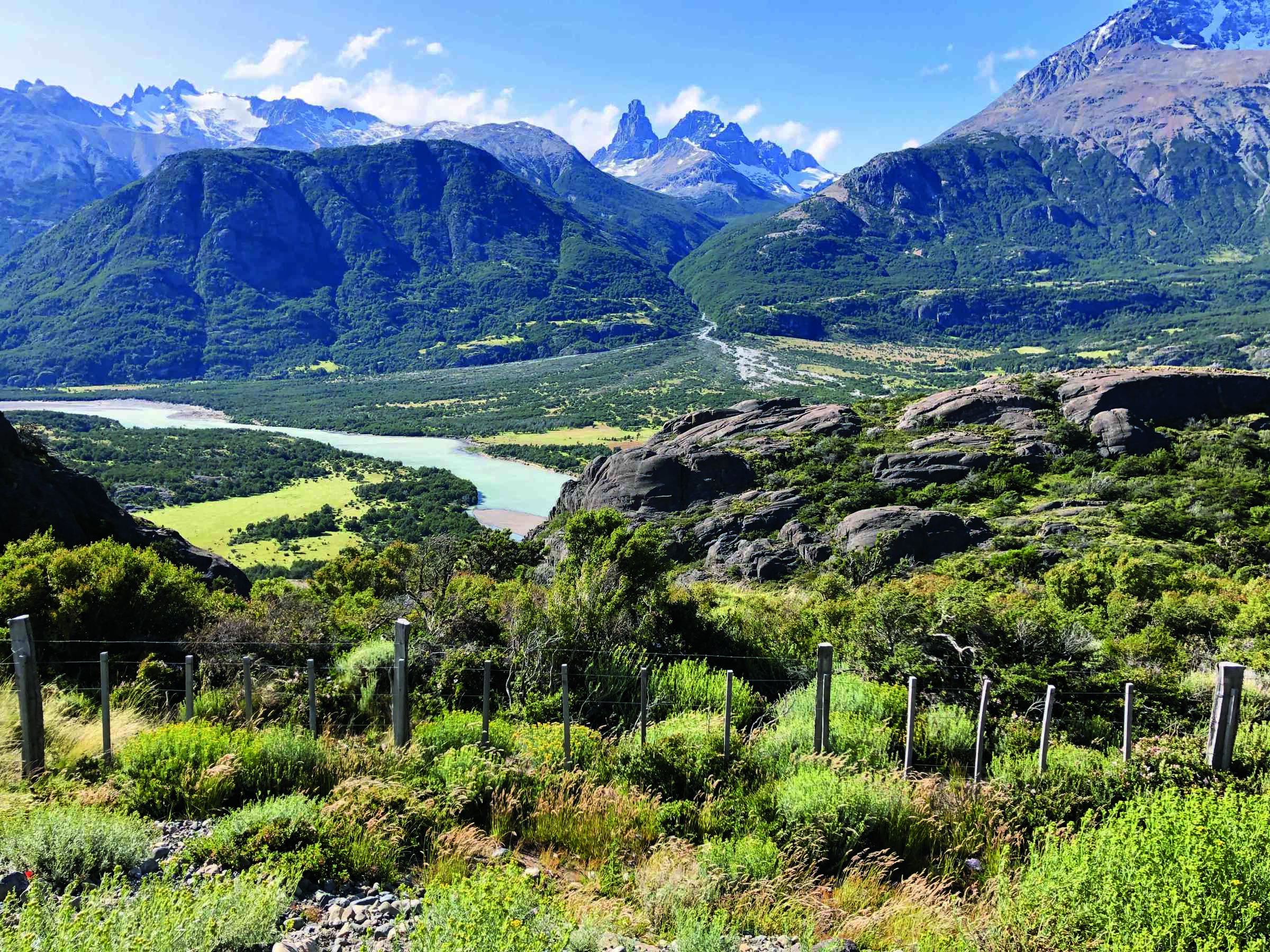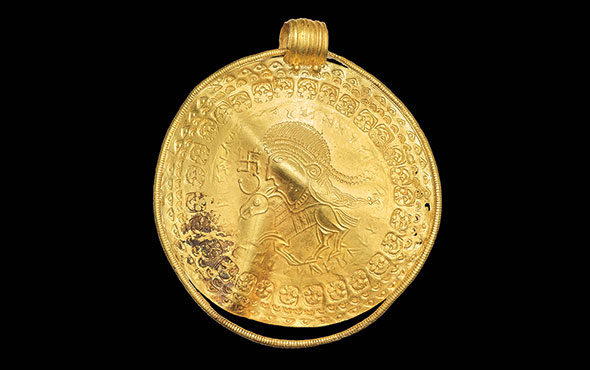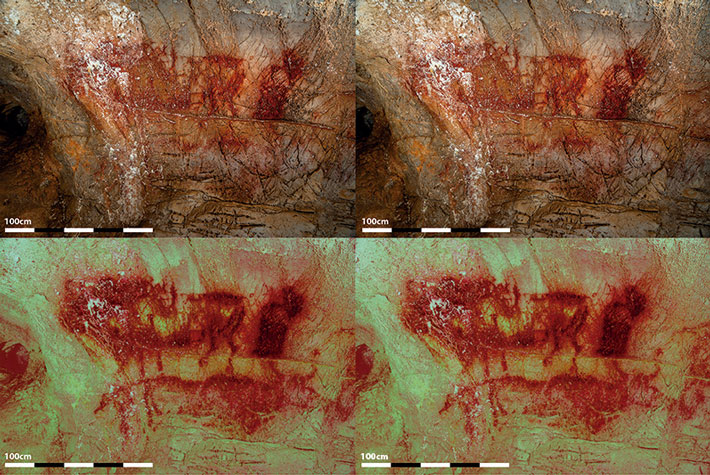
MADRID, SPAIN—Phys.org reports that stereoscopic photographs taken of rock art in northern Spain’s La Pasiega Cave have led to the discovery of additional images and offered researchers new insights into known paintings. When observed in 2-D photographs, some of the images had previously appeared unfinished. The new photographs, however, have allowed Raquel Asiain of Complutense University and her colleagues to recognize how the artists may have been inspired by the rock formations. For example, a newly found horse image measuring about 18 inches long consists of the corner of the mouth, an eye, an ear, and the beginning of its back painted in red. The study suggests that the horse’s back continues along a concave section of wall, and that cracks in the wall were used to show the outlines of the animal’s head and chest. In another image of a horse, measuring about 23 inches long, yellow ochre was used to paint the animal’s head, mane, back, and hindquarters, while the edge of the rock was used to show its belly and cracks were used to evoke a foreleg. For more on Paleolithic art in Europe, go to "Late Paleolithic Masterpieces."


